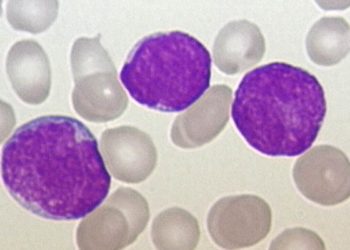Early, goal-directed therapy does not reduce mortality in septic shock [ProMISe trial]
1. Early, goal-directed therapy was shown to reduce mortality in severe sepsis and septic shock in a single-center, randomized controlled trial.
2. This multicenter trial conducted in England demonstrated that early, goal-directed therapy did not significantly reduce 90-day mortality in patients with severe sepsis and septic shock when compared to usual care.
Evidence Rating Level: 1 (Excellent)
Study Rundown: Patients suffering from severe sepsis and septic shock experience high rates of mortality and complication. The Rivers trial, originally published in 2001, was a randomized trial that demonstrated significantly lower mortality when patients were resuscitated using protocolized early, goal-directed therapy (EGDT). A major critique of this trial was that it was conducted at a single center, and many questioned whether such results could be replicated in other settings. Since then, several multicenter trials, including the ProCESS and ARISE trials, have demonstrated no benefit for EGDT. The Protocolised Management in Sepsis (ProMISe) trial explored whether the 6-hour EGDT resuscitation protocol was superior to usual care in terms of clinical and cost-effectiveness in the English National Health Service (NHS). In summary, the ProMISe trial, conducted at 56 different sites in England, found that treating patients with severe sepsis and septic shock with EGDT did not significantly alter 90-day mortality when compared to usual care. Patients being treated with EGDT were found to have more organ dysfunction at 6 hours, were more likely to receive cardiovascular support, and had longer intensive care unit (ICU) stays compared to those receiving usual care.
Click to read the study in NEJM
Relevant Reading: Early goal-directed therapy in the treatment of severe sepsis and septic shock
In-Depth [randomized controlled trial]: This pragmatic, open, multicenter randomized controlled trial was conducted at 56 sites of the NHS. Patients were eligible for the study if they were ≥18 years of age, had known or presumed infection within 6 hours of presentation to the emergency department with 2 or more systemic inflammatory response syndrome (SIRS) criteria, and either refractory hypotension (i.e., systolic blood pressure <90 mmHg or mean arterial pressure <65 mmHg despite 1 L of intravenous fluid in 60 minutes) or hyperlacteatemia (i.e., serum lactate ≥4 mmol/L). The primary outcome measure was all-cause mortality at 90 days. Secondary outcome measures included Sequential Organ Failure Assessment (SOFA) scores at 6 and 72 hours, receipt of advanced cardiovascular support, and length of stay in the intensive care unit (ICU). All analyses were performed according to intention-to-treat.
This study involved a total of 1251 patients, of which 625 were randomized to EGDT and 626 were randomized to usual care. There were no significant differences between the two groups in 90-day mortality (adjusted RR 0.95; 95%CI 0.74-1.24; p = 0.73). Patients receiving EGDT experienced higher SOFA scores at 6 hours (p < 0.001) thereby suggesting more organ dysfunction, were more likely to receive advanced cardiovascular support (p = 0.026), and had longer median length of stay in ICU (p = 0.005) compared to those being treated with usual care. While the average cost was found to be higher in the EGDT group compared to usual care, this difference was not significant (US$17 647 vs. US$ 16 239, respectively; p = 0.26). There were no significant differences between the two groups in the rates of adverse events (p = 0.58).
Image: PD
©2015 2 Minute Medicine, Inc. All rights reserved. No works may be reproduced without expressed written consent from 2 Minute Medicine, Inc. Inquire about licensing here. No article should be construed as medical advice and is not intended as such by the authors or by 2 Minute Medicine, Inc.







![Active smoking cessation intervention may provide tangible results [Project CLIQ]](https://www.2minutemedicine.com/wp-content/uploads/2014/12/smoking-e1418644951268-75x75.jpg)